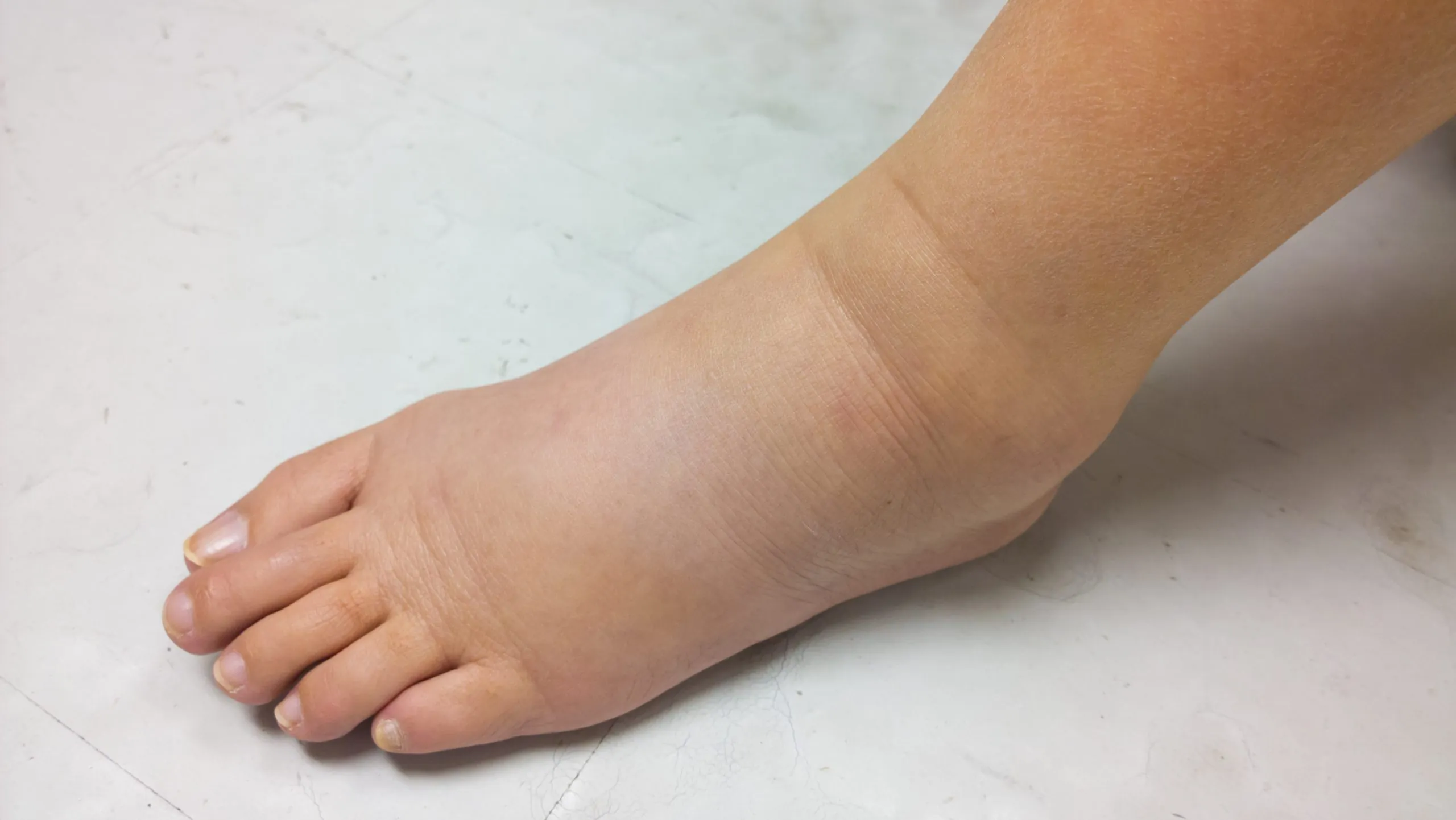Swollen feet are a common and usually harmless occurrence. Common reasons for swollen feet include certain medications, health issues, heat, and prolonged standing. However, there may be other factors for swollen feet.
What causes swollen feet?
Whether or not swollen feet are visible to the naked eye, they are typically noticed due to their discomfort. Following an injury, irritated ligaments may cause a foot to swell. Foot swelling may also be brought on by infections, circulation issues, and lymphatic system malfunction. However, some conditions can cause swelling.
For instance, in the case of gout, the buildup of organic waste in the foot joints results in swelling and unbearable pain. Fever and fatigue may be present, and the afflicted joint becomes red and deformed. If you have these symptoms, you must speak with your FootNetwork podiatrist as soon as possible because they might indicate an infection.
Because diabetes causes blood arteries to thin and affects blood flow, it can also result in foot swelling. Due to the disease’s impact on the nerves, diabetic patient typically also feels less sensation in their feet and toes.
A few symptoms of swollen feet
Uncomfortable symptoms from a swollen foot are common. However, some symptoms associated with a swollen foot are not harmless, and you should schedule a consultation if you notice them.
Check to see if the swelling occurs suddenly, if it hurts a lot, and if halting an activity and applying cold may help you regain mobility. Does the color of your skin change when you touch your foot? Is the foot deformed? This information will be beneficial in further investigation and finding remedies.
If you have extreme pain, loss of appetite, fatigue, or a change in the color of your skin along with the swollen foot, it is likely that you need medical care.
Remedies for a swollen foot
Fortunately, there are a few easy ways to treat swollen feet. The majority of occurrences of swollen feet are linked to activity and water retention. Keeping an eye on your diet and way of life can be beneficial. It is advised to follow your doctor’s instructions in cases of swollen feet linked to a disease.
Eat healthily
Water retention is typically brought on by an excessive salt diet combined with dehydration. Although it can affect the entire body, it most frequently impacts the lower limbs, leading to heavy legs and swollen feet.
In this situation, it is recommended to consume fruits and vegetables because of their high water and nutrient content and to routinely drink water to stay hydrated and aid in waste elimination.
Physical exercise
Swollen feet can be brought on by prolonged standing and being still, but they can also develop due to inactivity. In both cases, the common factor is blood circulation, which needs to be stimulated.
To raise your heart rate and enhance circulation while maintaining a healthy weight, you should ideally exercise every day.
Oils and baths
Cold is known to have a beneficial effect on certain types of pain as well as on blood circulation. If your feet are swollen, you might want to take a cold foot bath.
For a salt bath, you should use lukewarm water to help dilute the crystals.
Finally, there are essential oils renowned for rejuvenating and stimulating blood vessels. Peppermint, which has a tonic and energizing effect, and cypress are two of the most widely recognized. But use with caution, as if the dosages are not followed, they can cause irritation.
What are the other solutions if the foot remains swollen?
Other options include lifting the legs, practicing self-massage, and wearing compression stockings or special shoes. To avoid self-diagnosis, it is advisable to speak with a FootNetwork podiatrist who can examine your feet and offer advice on the most effective course of action.

